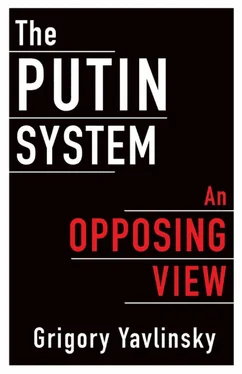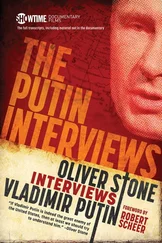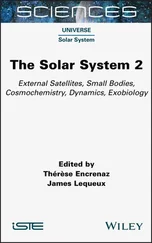The West, for its part, categorized present-day Russia as a threat to international stability, which was to be removed through various means, namely, political and economic sanctions and, possibly, coercion. Regardless of the specific measures chosen as the West’s immediate response to the Kremlin’s actions in the Ukrainian crisis, governments and mass media in Western countries offered their publics an unequivocal interpretation of these Russian steps as a challenge to the familiar world order—a challenge that could not be left without a response. This is their long-term assessment, and it seems unlikely to change, even if the Kremlin and the West find some formula for a mutual adjustment of their interests and demands on the issue of Ukraine.
The conflicts that have been shaking the Kremlin’s relationship with the global West since 2014 have led to a predictable outcome: in the view of many, Russia has decidedly split from the international community, in its Western definition, likely for the long term. And its ruling circle has decided that a conspicuous isolation or self-isolation of Russia from the West suits them better than attempts to adjust their behavior to the West and its rules. While some observers, both in Russia and in the West, claim that this decision was made by one man—Vladimir Putin—it is hardly possible to deny that these kinds of sentiments are widespread in Russia’s ruling circle and within its political class as a whole.
For the same reason, the Kremlin’s official adoption of this “new” course in international affairs, first and foremost in the former Soviet regions, did not meet with even muted resistance; in fact, it was received with genuine enthusiasm by most of Russia’s elite. The long-standing popular view of Russia as cosmopolitan, closely tied to the West by its business and everyday interests, had turned out to be at odds with reality. Instead, it became clear that the bulk of Russia’s administrative and business elite was well aware of the actual source of its affluence and was not ready to risk losing it for the sake of tenuous benefits to be derived from their interactions with the West, whether at the same level as before or even at a more intensive level.
Understandably, the Kremlin’s official, public position, which is bound to be somewhat deceitful, refers, as before, to the importance of dialogue, to the need to seek common ground, to the desirability of cooperation and the benefits that it brings to both sides, and so on. Nevertheless, we must lucidly acknowledge that the changes that have occurred in this sphere are very far-reaching. Under the present circumstances, any “return to the early 1990s,” when Russia’s still embryonic authoritarianism was outwardly ready to accept the prescribed role of a subordinate and externally controlled piece in the big picture of the global order, is unthinkable. For the Kremlin, the state of confrontation with the West and the denial of the role that had been prearranged for it is becoming not merely acceptable but even comfortable. It provides the ruling circle with the opportunity to set up a mobilization-oriented framework of domestic political development, effectively thwarting the protestations by those forces inside Russia that are trying to counteract this situation.
Moreover, by emphasizing in its propaganda that it has been the initiative of the West to punish Russia as a violator of the rules, through the use of economic sanctions, the Kremlin absolves itself of its responsibility for the impending deterioration of economic conditions in Russia, where high consumption levels and, especially, further economic growth depend upon close ties with its global metropole, the West. It is worth noting that the role played by the Ukrainian crisis in the authoritarian regime’s turn toward self-isolation from the West should not be overstated. The crisis only provided a convenient pretext for Russia’s ruling elite to make a show of its “divorce” from the West. The political and economic preconditions for it had ripened earlier and were merely awaiting for an appropriate occasion to come to the fore and to propel the Kremlin into action. Had this action been taken at a later stage, it might have been less showy but more thorough and irreversible in its impact.
In my view, the economic preconditions for this turn away from the West were more definitive. Namely, the resource export–oriented framework of Russia’s economy had exhausted its capacity to serve as the engine of economic development and consumption, not merely in theory but also in practice. This conclusion became a point of consensus among almost all political forces in Russia and was repeated nearly ad nauseam; yet, for quite a while, Russia’s elite was not truly and completely aware of what this actually meant. It was only after the 2008–2009 crisis and the evaporation of the hopes for the resurgence of the economic “mini miracle” of the “fat years” (2003–2007) that it became plain to see: the growth that relied upon oil and gas exports was actually petering out, and no new impetus for Russia’s economic development could be generated just by intensive connections with the West.
Accordingly, Russia’s political elite viewed these ties as an asset of diminishing value, and the possibility of formal and informal sanctions by Western countries was no longer a constraint for the Kremlin. The disappearance of prior benefits from the growth of raw materials exports to leading industrial countries was ascertained as a fact by the bulk of Russia’s elite that was not directly involved with these industries. Meanwhile, the opportunities to diversify the range of industries and economic activities specifically through close interactions with Western economies either were nonexistent to begin with or were never seized upon by the ruling circle. As a result of all of these factors, Russia’s economic elite never put up any significant resistance when the Kremlin began its turn toward political confrontation with the West at the expense of economic ties both with the West and among the elites themselves.
Evidently, the political prerequisites for this turn were primarily related to the outlook and psychology of the man at the top of the authoritarian hierarchy. Specifically, Vladimir Putin found himself a square peg in a round hole in the club of global chief executives; they did not see him as one of their own, let alone equal to them. They viewed even his very presence in the Group of Eight as a leftover from the Cold War, a consequence of Russia’s ownership of a disproportionately large stockpile of nuclear weapons and now out of sync with Russia’s far humbler role in the world economy, trade, and investment. Meanwhile, the Russian leader’s denial of this situation and his aspirations for a larger role were the source of constant mutual irritation and displeasure. Sooner or later, these feelings were bound to erupt, morphing into tough, intransigent actions.
It is also plain to see that the widespread perception of Russia’s top elite as a cosmopolitan group, whose economic interests and personal plans connected it tightly to the West, were also at odds with reality. Even those among Russia’s business and political elite who, on a personal level, would like to integrate with the “greater West” felt like disrespected and disavowed waifs there, because of their differences from the Western elite in education, psychology, mind-set, and personal experience. They could never get rid of a certain kind of psychological discomfort, which instinctively produced a feeling of being offended, and even a sense of their own superiority over the representatives of the Western elite, whom they saw as pampered and narrow-minded. Most of Russia’s high-ranking officials and businesspeople never managed to secure sources of income and social status in the developed world that would be on a par with what they had at home, nor were they able to escape the feeling that the outside world viewed them with a certain disrespect, as global “provincials” of sorts. Naturally, all this affected their outlook, which was reflected in their inability and unwillingness to put up an earnest resistance when the Kremlin created the impetus for hateful and contemptuous rhetoric toward the West.
Читать дальше












